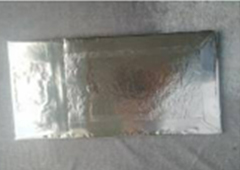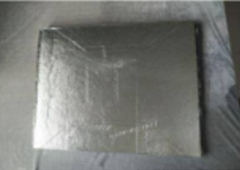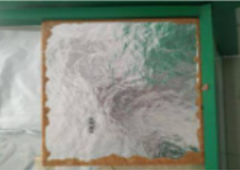Vacuum Insulation Panel(VIP)is a new and highly efficient type of insulation material which is based on the principle of vacuum heat insulation.
VIP combines the advantages of vacuum heat insulation and micro-pore heat insulation which ensures VIP could achieve its extremely excellent heat insulation performance.
The thermal conductivity of Supertech's VIP could be less than 1.5mW/m.K its R-value is 10 times higher than the traditional insulation material. Compared with Polyurethane(PU) and other traditional insulation materials, VIP is not only more energy-saving efficient, but also environmental-friendly which does not contain any ODS material during the production and application.
Currently, VIP is widely applied in refrigerators, freezers, vending machines, and other refrigeration equipment as well as for building insulation.
In years of experience in providing practical insulation solutions for various electrical and transportation enterprises, the insulation materials commonly used for Saite VIP panels are fiberglass, silicone, and PU.
| Type | glass fibre VIP | fumed silica VIP | PU-VIP | |
| Product appearance |  |  |  | |
| Product features | Thermal Conductivity mW/(m·k) | 1.5-3.5 | ≤3.5 | <8 |
| Service life | >10 years | >15years | >10 years | |
| Application | Refrigerators, freezers, incubators, etc | Refrigerators, freezers, incubators, etc | Refrigerators, freezers, incubators, etc | |
| Length (mm) | Width (mm) | Thincness (mm) | Working temperature (℃) |
| 80—1800 | 80—800 | 4—40 | -70—80 |
| Thermal Conductivity (mW/(m·k)) | Inner Presssure (Pa) | Outer pressure (kPa) | Density (kg/m³) |
| 1.5 | <10 | ≤200 | 240—300 |

Cost performance is the key factor to determine which type of insulation material to be used. VIP, due to its excellent lower thermal conductivity now becomes the first choice for refrigerator and freezer to improve energy efficiency grade.

Those VIP by using Super Film or Nano Film, at reasonable price level, VIP's cost performance is much better than PU, besides, by applying VIP, the heat bridge effect could be dramatically reduced. Moreover, VIP could be easily installed, VIP will be much more widely applied in refrigerator and freezer in near future.

Thermal conductivity 入<1.5mW/(m·K).

Adopt nano-structured non-aluminum foil barrier film, almost no edge effect.

High thermal resistance, long life, and cost performance is much higher than PU.

Passed more than 220 hazardous substance tests.

Wall Insulation: VIPs can be used in walls to provide superior thermal insulation without significantly increasing wall thickness.
Roof Insulation: They are ideal for flat and pitched roofs, helping to reduce heat loss and improve energy efficiency.
Floor Insulation: VIPs can be installed under floors to provide effective insulation, especially in areas where space is limited.
Facade Systems: They can be integrated into facade systems to enhance thermal performance while maintaining a slim profile.

Refrigerators and Freezers: VIPs are used in the walls and doors of refrigerators and freezers to improve energy efficiency and maintain consistent internal temperatures.
Cold Storage Rooms: They are used in the construction of cold storage facilities to minimize heat transfer and reduce energy consumption.
Transport Refrigeration: VIPs are used in refrigerated trucks and containers to maintain low temperatures during transportation of perishable goods.

Water Heaters: VIPs can be used to insulate water heaters, reducing heat loss and improving energy efficiency.
Ovens and Cookers: They can be used in the construction of ovens and cookers to provide better thermal insulation and reduce energy consumption.

Electric Vehicles (EVs): VIPs can be used to insulate battery packs in electric vehicles, helping to maintain optimal operating temperatures and improve battery efficiency.
Thermal Management: They can be used in various parts of vehicles to improve thermal management and enhance passenger comfort.

Aircraft Insulation: VIPs can be used in aircraft to provide effective thermal insulation while minimizing weight, which is crucial for fuel efficiency.
Spacecraft: They can be used in spacecraft to provide thermal insulation in extreme temperature conditions.

Thermal Packaging: VIPs are used in thermal packaging solutions for shipping temperature-sensitive products, such as pharmaceuticals and biological samples, ensuring they remain within required temperature ranges during transit.

Process Equipment: VIPs can be used to insulate industrial process equipment, reducing heat loss and improving energy efficiency.
Pipelines: They can be used to insulate pipelines, particularly in applications where maintaining temperature is critical.

Solar Panels: VIPs can be used in the construction of solar panels to improve thermal insulation and enhance efficiency.
Wind Turbines: They can be used in wind turbines to provide thermal insulation for sensitive components.

Incubators: VIPs can be used in medical and laboratory incubators to maintain precise temperature control.
Cryogenic Storage: They can be used in cryogenic storage systems to provide effective thermal insulation.
